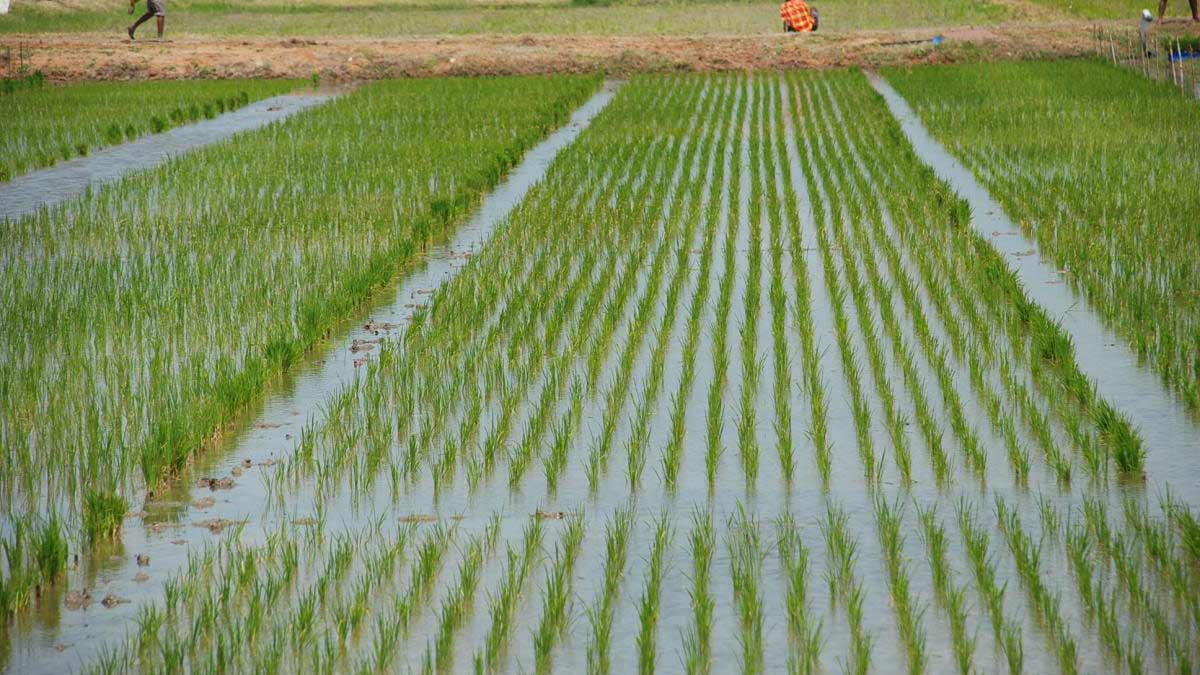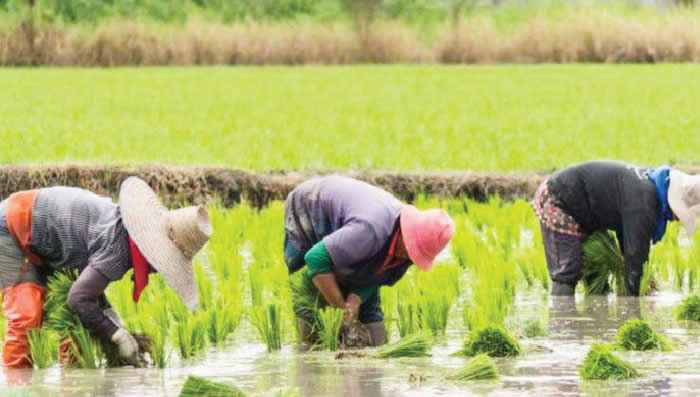
November 17, 2023
Women Small Farmers Taking the Lead in Decision-Making Processes
Introduction:
Empowering women small farmers through meaningful participation in decision-making processes is a dynamic pathway towards cultivating equality in the agricultural sector. This subtitle delves into the critical role played by women small farmers as they take the lead in shaping agricultural policies and programs. By actively engaging women in decision-making, we can foster inclusive and sustainable agricultural practices that celebrate gender equality and drive rural development.

- Recognizing the Capacity and Expertise of Women Small Farmers:
Women small farmers possess a wealth of agricultural expertise and knowledge, accumulated through generations of hands-on experience. Acknowledging their capabilities and expertise is the first step in empowering them to make informed decisions that address their unique challenges. - Bridging the Gender Gap: Breaking Barriers and Challenging Stereotypes:
The participation of women small farmers in decision-making processes breaks down gender barriers and challenges harmful stereotypes that limit their potential. By embracing women’s leadership and expertise, we can dismantle the systemic discrimination that hinders their full participation in the agricultural sector. - Building Inclusive Policies and Programs:
Inclusive agricultural policies and programs are critical to addressing the specific needs and challenges faced by women small farmers. By actively involving women in decision-making, their perspectives are integrated into policy development, ensuring that agricultural programs cater to their needs in areas such as access to land, credit, markets, and inputs. - Access to Resources and Opportunities:
Meaningful participation in decision-making processes enables women small farmers to advocate for improved access to resources, such as land, credit, training, and technology. By having a say in resource allocation and distribution, women farmers can overcome barriers that prevent them from fully realizing their potential. - Strengthening Market Linkages and Economic Opportunities:
Women small farmers often face limited market access and unequal income opportunities due to gender-based discrimination. Through their active involvement in decision-making processes, they can shape policies that promote fair market practices and equal economic opportunities, thus boosting their incomes and economic empowerment. - Environmental Sustainability and Climate Resilience:
Women small farmers have a unique perspective on sustainable agricultural practices and climate resilience. By empowering them to participate in decision-making processes, their traditional wisdom, innovative approaches, and indigenous knowledge can be harnessed to drive environmentally sustainable farming practices. - Leadership Development and Capacity Building:
Participation in decision-making processes helps women small farmers develop leadership skills, enhance their capacity, and strengthen their confidence. Through training programs, mentorship, and networking opportunities, women farmers can acquire essential skills in negotiation, advocacy, and financial management, which are crucial for their role in decision-making. - Creating Supportive Institutional Frameworks:
To ensure long-lasting empowerment, it is vital to establish supportive institutional frameworks that actively promote the participation of women small farmers in decision-making. This includes creating platforms for dialogue, providing resources for capacity building, and implementing gender-responsive policies that promote equal opportunities for women farmers. - Promoting Collective Action and Cooperation:
Women small farmers can harness collective action and cooperation to amplify their voices and influence. By organizing themselves into cooperatives, women can leverage their collective strength to advocate for their rights, access resources, and negotiate with market actors, ultimately enhancing their economic and social well-being. - Enhancing Social Inclusion and Empowerment:
Meaningful participation in decision-making processes not only improves the livelihoods of women small farmers but also enhances social inclusion and empowerment. When women are engaged in decision-making, they gain visibility, respect, and recognition within their communities, challenging prevailing gender norms and promoting gender equality.

All Categories
- Agricultural Methods
- Agriculture and Women Small Farmers Rights Awareness
- Climate Change
- Disable and Human Rights
- Disable Jobs
- Donation
- Education
- Health Issues
- Organic Foods
- Organic Vegetables
- Orphans Children
- Plastic production and disposal
- Services
- Sinking in Scarcity
- Success Stories
- Uncategorized
- Waste Management
- Women Rights
- Youth Empowerment
Recent Posts
Muhammad bukhsh0 Comments
Chairperson of Senior Citizen Forum Sargodha, Recently Visited Sundus Foundation Thalassemia Center
Muhammad bukhsh0 Comments
Climate Change Communication: Fostering Public Awareness and Understanding
Muhammad bukhsh0 Comments




